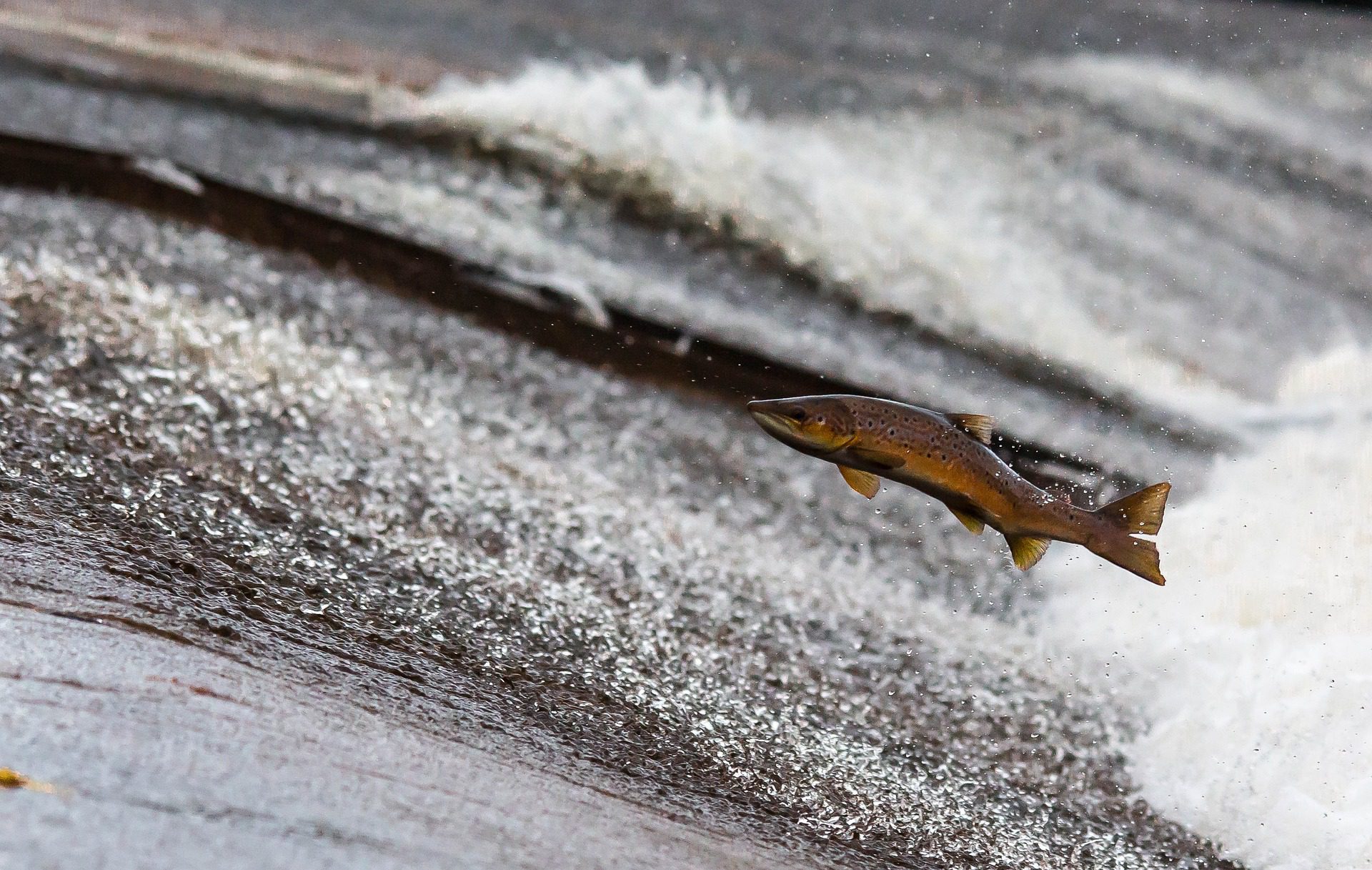Linsey Barclay-Smith
- Partner

There are all sorts of salmon fishing opportunities in Scotland, from fishing the large Scottish rivers like the Tweed and Tay, to the intimate and less well-known beats – many on the Scottish Islands. It’s an interesting topic that needs careful consideration from several perspectives.
For example, did you know that in some areas, sizeable rivers like the Conon and Beauly are less dependent on rainfall because the flow regime is moderated by hydro-electric schemes? While other rivers, such as those in the northern spate, are dependent on summer rain to bring salmon in from the sea. There are lots of renowned rivers like the Helmsdale, Thurso, Naver, Halladale, Dionard, and Laxford that, on a good day, can provide salmon fishing unrivalled anywhere in the world. So, what do you need to consider if you want to buy a beat?
Buying salmon fishings – valuation
Many people who enjoy salmon fishing start off by renting fishings to develop their taste for the sport and then, if they are lucky, may they be able to splash out and buy some salmon fishings of their own. Buyers come from all over the world to rent and buy salmon fishings in Scotland. They come up on the market with reasonable regularity and many of the larger land agents not only market them but can also offer a valuation service. Given that the valuation of salmon fishings is a specialism you should seek specialist advice if you ‘re considering such a purchase. Values are affected by a large range of factors including location, length of beat, single or double bank, ownership of the solum and/or adjoining riverbank, existence of a cottage for a ghillie, number of rods customarily fishing the beat and the existence or otherwise of netting rights at the mouth of the river. Valuers also look at the 5 and 10 year catch records for salmon and sea trout to determine value. With all these influencing factors, it’s clear that the valuation of fishings is not straightforward!
The legals
Just as the valuation of salmon fishings is a specialism where you need the right advice, the same is true of the legal process of buying salmon fishings. Crucially, you will not have real ownership unless you get your title to the salmon fishings registered in the Land Register of Scotland, meaning that you need to satisfy the Keeper of the Land Register.
Solicitors need to consider whether there is a valid title to the salmon fishings – i.e., has salmon fishing been specifically included in each conveyance of the property for the requisite period? They need to consider whether the extent of the salmon fishings can be identified on the Ordnance Survey map. Given that the Keeper operates a map-based system, this is vital. You need to know whether the Keeper will accept the description of the fishings. For example, the Keeper will generally accept wording such as “the right to fish for salmon or fish of the salmon kind between the points marked A and B to the medium filum of the River Tweed” provided the application includes a plan clearly identifying the location and extent that is supported by a valid progress of title supporting the location of the fishings. Descriptions must be looked at on their own merits.
Further to these factors, some other quirks need to be considered, such as whether the Crown has alienated the title to the salmon fishings. If a salmon fishing interest derives from a specific Crown grant, no further evidence is required. There are some niceties around that too that need to be explored and in many cases the Crown grant may need to be supported by evidence of possession. If the rights derive from a Barony Title, which is effectively a general Crown grant, again the Keeper will need evidence of possession to support the title.
In many cases, if there is no specific or general Crown Grant and enquiry needs to be made to the Crown Estate Commissioners. If they are satisfied that the Crown has no claim, they will issue a letter confirming that the Crown will not seek to challenge the salmon fishing interest.
Given that the nature of salmon fishings is incorporeal, neighbouring proprietors may lay claim to title and possession of rights to salmon fishing in the same extent of water. This is why the Keeper requires to consider evidence of possession. Evidence may take the form of catch records, leases, licences, or affidavit evidence from individuals who can attest that the salmon fishing interest has been held peaceably and without challenge. The evidence of possession must relate specifically to the extent of the salmon fishing interest for which registration is sought, and must in most cases, cover the period of 20 years.
Final oddities to be aware of
If you buy salmon fishings it may well be that you don’t get any land as part of the purchase, however, you do receive an implied right of access to exercise your right to fish. If you are the owners of the salmon fishing rights that’s an important implied right. If you are the owner of the land, but not of the fishings you need to be aware of this as you may see people on your land and accessing your river!
Finally, it is a criminal offence to poach salmon that you have no right to, and with the decline in salmon fish stocks such matters are taken very seriously by the Police and Fisheries Management Scotland, who consider salmon poaching as a highly damaging wildlife crime activity.
If you are interested in buying salmon fishings or have any queries about salmon fishing in Scotland, please contact Linsey Barclay-Smith, Specialist in Agricultural Law.
You may also be interested in the following articles: